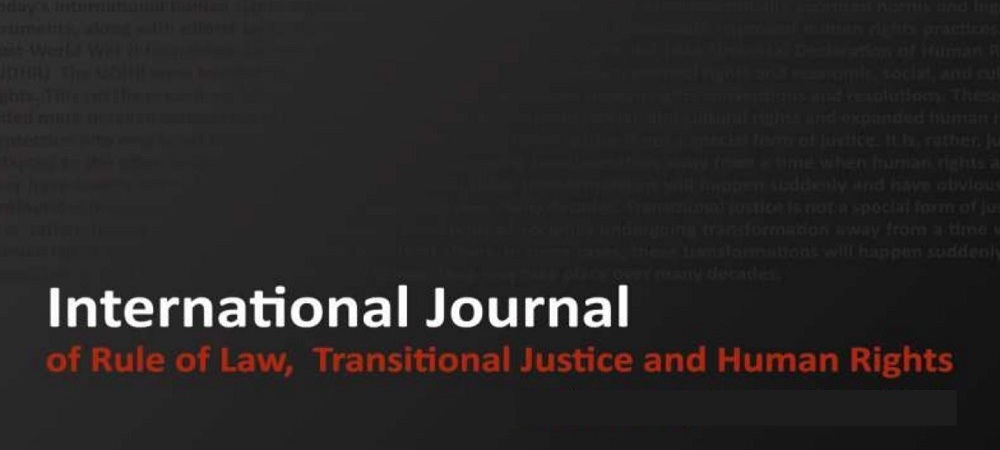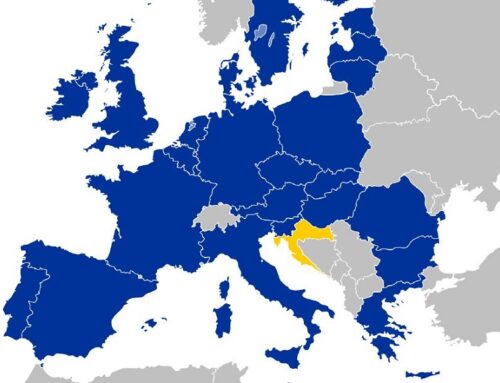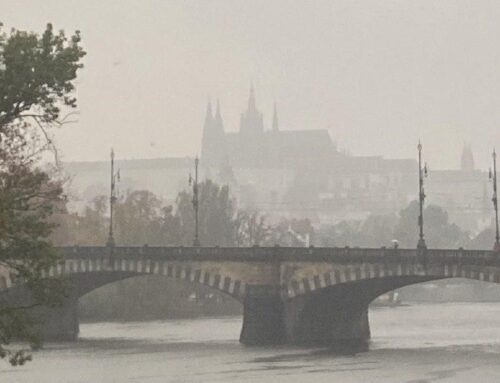By Hristina Crenn
ABSTRACT
This article presents a profound analysis of the diverse legal aspects that influenced over time the structure of the core architectural instruments of the Bosnian type of Feminism in the field of International Relations and Human Rights Law. The necessity to embark on the journey of Peace Resolution was the primordial goal of the last two decades, especially in the aftermath of the war in Bosnia. The incredible efforts of the Bosnian Women seem quite often to be obliterated by the legal pages of history. Thus, somewhere they are mentioned, somewhere not. The fragile circumstances of the war, life under constant threat, systematic violence, ethnic cleansing, hidden mass graves are considered to be the most terrible crimes against humanity committed after the World War II. Many Women activists, locally and nationally, contributed significantly for the process of stabilisation and institutionnalisation of the state apparatus. Hearing the voice of the voiceless female victims, years after the war, and the inclusion of Women in the political sphere of power launched the process of emancipation that challenged tremendously the existence of the patriarchy. The ethnic and religious intolerance is a political instrument that Women try to modify by promoting unity among the huge mass of people.
Hristina Crenn is a student at Paris 1 Panthéon-Sorbonne University, more precisely at Sorbonne Law School (pursuing a Bachelor of Laws), and a student at Ibn Haldun University (Turkey) pursuing a Double major History & Political Science and International Relations. She is completing an inter-continental interdisciplinary education in two different countries in order to grasp the divergent perspectives of multicultural civilisations because her main interest and research focus is centered more specifically on the study of Women’s contribution to history and legal history on a societal level. She is an active learner of International Law, particularly International Humanitarian Law and Conflict&Peace Studies.
“You can chain me, you can torture me, you can even destroy this body, but you will never imprison my mind.” – Mahatma Gandhi
Introduction
Historical overview: The context of the War
Peace is a temporary journey, conflict is a long and disastrous process. Transitional justice is the only remedy in a changing political landscape. However, when and where it all started? Why the war emerged? These are our two main questions of analysis. The Bosnian war started on April 6, 1992, three years after the fall of the Soviet Union and one year after the breakup of Yougoslavia. The armed conflict lasted for three years, until December 14, 1995. During the Siege of Sarajevo, 11 000 people were killed, among them 2000 children. Thus, the Children’s Square in the center of Sarajevo is a memorial place that contains the names of the murdered children.
Main Part
1.The Role of Women’s organisations
The structure of leadership always requires a presence of strong personalities determined to change the static pathway of organisation management. Thus, the emergence of new NGOs facilitates the work of many individuals, who can eventually establish communication with the victims of the war and ask for help. The main rhetorics in the aftermath of a conflict is to promote the idea of the universality of Human Rights. Nevertheless, the transition between theory and practice is not always fantastic. It is very easy to enact laws, but very difficult to implement them. The societal fabric of Bosnia and Herzegovina is a complex methodology that doesn’t exist anywhere in the world as a political model of governance.
The Dayton agreement is the significant cease-fire that drastically changed the political image of Bosnia and Herzegovina, but didn’t improve it. The country was divided into three parts: Bosnia, Herzegovina, and Republika Srpska. The territorial units of Bosnia and Herzegovina constitute a separate entity known as ‘the Federation’. Republika Srpska is an independent region of the country. There are 10 cantons in the Federation of Bosnia and Herzegovina and one peculiar territorial unit, Brčko.
Over time, the notion of the universality of Human Rights was shaped differently. A plethora of conventions were promulgated, but none of them actually protected the integrity of the individuals in danger. Women’s agency was primordial in the course of the years, especially with the newly founded NGOs. As a result, Women could for a very short period of time reconstruct from scratch the collapsed state apparatus. Several attempts were undertaken to establish a societal democratisation. Unfortunately, such efforts were not crowned with success.
Three years after the war, the ICTY started to collect evidence, interrogate individuals (victims of the war) and arrest the perpetrators. It looks like, that during a war, international law is dormant. The legal provisions ‘wake up’ after a crime is committed. The international community and the Great Powers failed to protect the population of Bosnia and Herzegovina. The conflict was orchestrated and led by two powerful military regional leaders – war criminals: Ratko Mladić and Radovan Karadić.
The civil society of Bosnia and Herzegovina is directed by various NGOs, generally led by Women. As a matter of fact, these NGOs are organising interactive educational programs for young children and adults. The Kvinna till Kvinna Foundation provides reliable information about the work of NGOs in Bosnia and Herzegovina.
Unfortunately, the Dayton agreement was signed only by Men. No Woman was present during that meeting, which explicitly confirms the hierarchy of male superiority and female subordination in the process of decision – making. Some people say that equality doesn’t mean justice, but that doesn’t justify the frequent presence of men in the political sphere. Women also have a voice that needs to be heard. Gender equality requires also the usage of gender – neutral based language.
Some of the famous Women NGOs in Bosnia and Herzegovina are: Medica Zenica, Sarajevo Medica, Zene Zenama, Merjem Kewser, AFZ, Active Women Movement, the League of Women Voters, Buducnost in Modrica, Centar za Pravnu Pomoc Zenama, Horizonti in Tuzla etc. These Women’s organisations launched the process of institutionnalisation of the private and public sphere of the society. Surprisingly, many of the Women’s names could be found on the electoral lists of the municipalities and the local assemblies. Thus, in the era of socialism, Women had equal rights as Men, but in the aftermath of the war, especially during the era of immediate democratisation Women didn’t enjoy their political rights. In some cases, they could only act as observers. Initially, the elections were exclusively reserved for Men. It could be widely noticed that Women’s suffrage was perceived as a social danger that could ruin the political heaven of Men. On the other hand, many of the NGOs still continue to receive international grants and regional funds. The goal is to support the activities organised by the women living in the provinces. The frequent reunions that take place in the NGOs could help many Women (war survivors) to heal and restore their confidence. This type of speech therapy contributed greatly for the development of their skills that served as an indispensable and valuable asset in the process of searching new job opportunities.
The wide spectrum of social trajectories could preserve the dignity of many Women who wished to ameliorate their mode of life. Women no longer wanted to be perceived as passive citizens. The active life of Women as wage-earners could commonly be defined under the notion of prosperity. The creation of the Women Labour Unions was a convenient mechanism that granted political rights to Women. In addition, such organisations defended Women’s rights in the workplace. Professor Zlatiborka Popov-Momčinović in her book “The Women’s movement in Bosnia and Herzegovina – in the words of counterculture” mentions that the long journey towards sustainable peace sometimes is abruptly interrupted by some party members because their main aim is to discriminate the integrity of Women’s rights and the new movement of Bosnian type of Feminism: “This is why it comes as a surprise that some party members, after a successful revolution, shortsightedly defined feminism as a retrograde, bourgeois ideology which only perpetuates the subordination of women by identifying female and/or feminist activism with philanthropic work”.199 At the outset of a revolution, Men always display violence in the battlefield, while Women are more strategic. Majority of Women always try to uphold the honour of their family and search for alternative solutions, especially during a war.
2. The Brutality of the War: systematic violence
Inger Skjelsbæk, a distinguished Norwegian psychologist, defines the atrocities of the war as: ‘the war zone, in general, is a place of increased gender polarization”200. The philosophical discourse reflects the idea that in a state of a chaos, everything is neglected, the situation is out of control and the only goal of the perpetrators is to attack the enemy. However, the theories of International law are completely different. The dispute must be settled (in French: le processus de règlement des différends), committing crimes against humanity is strictly forbidden because is against the rules or the laws of the war. The order must be maintained.
Inger interviewed various women volunteers – victims of the systematic war rape. Danira, Azra, Ceca, Emila and Berina are the main narrators of the war horrors. Inger’s article, entitled:“Victim and Survivor:
Narrated Social Identities of Women Who Experienced Rape During the War in Bosnia and Herzegovina” perfectly depicts the catastrophic process of the war. As a Psychologist, she is giving a voice to the voiceless victims of the war – Women by hearing their version of the story, what exactly happened. Thus, speaking about the traumatic experience of the past is a process of liberation for those women.
The courage to speak again about something that occurred twenty years ago is a veritable act of writing history in another way, a testimony as a valid source of knowledge. Danira, Azra, Ceca, Emila and Berina have mentioned that some of their family members do not know their story. A problem quite often arises when a woman wants to marry. She might receive a rejection from the father of the family of her future husband and be abandoned. These testimonies reflect the ordinary aspect of the era of Yougoslavia where certainly life was a harmonious ethnical tale. There was no violence. The feeling of social security was prevalent during the long mandate of Tito.
The ICTY (International Criminal Tribunal for the former Yougoslavia) tried many individuals accused of committing sexual violence, systematic rape and ethnical cleansing: Duško Tadić, Zdravko Mucić, Anto Furundžija, Esad Landžo, Hazim Delić, Dragoljub Kunarac, Zoran Vuković, Radomir Kovač and Radoslav Krstić.
The testimony of Azra clearly states that systematic violence is against the laws of the war. Thus, the military leaders who breach the essence of these laws should be convicted: “It was in [she says the name of the place] in 1995, where the police, the federal police – asked me if I wanted to tell them what happened to me. They knew that I was injured and that I survived the war rapes. You know, what they (the perpetrators) did to me is something wrong. They committed a crime against me, and what they did I will never forget. I want them to be punished for that. They could have killed me, and I do not know why they did not. Maybe it was God’s will or destiny – I do not know – but I want them to be responsible for what they did to me, because those things that happened to me are criminal things. They are crimes against humanity”201.
The testimony of Danira depicts the necessary family support that a survivor should receive. On the other side, some women feel obliged to hide the truth from their family members because of the social pressure and pride: “My husband is very supportive. When we met for the first time, he said to me, ‘Do not tell me, I know everything.’ He knew when they took me to the concentration camp what would happen to me, and if he had not been so supportive I would have committed suicide. I know two women who do not talk about what happened to them because they are ashamed, and they have not told their husbands. They do not even want to talk to each other or to other women because they are so ashamed!”202. Definitely, it is not easy to share a personal story with other women. Remembering the horrors of the war is even more painful. Therefore, some women will never recover, while other will have the courage to share their testimonies with the audience.
3.The political action of Women: Women Reconcilers
The legal requirements of the article VII of the Dayton Agreement reminds us of the necessity to preserve the nature of human rights in the complex journey of achieving peace: “Recognising that the observance of human rights and the protection of refugees and displaced persons are of vital importance in achieving a lasting peace, the Parties agree to and shall comply fully with the provisions concerning human rights…”203. Women in their role as Reconcilers frequently organise local activities such as festivals, invite volunteers to take care of the orphans and the old people for free, raise funds for the Women NGOs and offer shelter for homeless people, but most importantly they provide informal educational programs to children and adults. Generally, in the era of Yugoslavia there were no significant problems between the people of various ethnicities. The war was launched by peculiar military individuals who decided to spread hatred and cause problems by portraying the negative ideas of nationalism.
The UN Resolution 1325 states that the conflict of gender equality should disappear by offering the Women exactly the same political rights as Men : “the important role of women in the prevention and resolution of conflicts and in peacebuilding, and stressing the importance of their equal participation and full involvement in all efforts for the maintenance and promotion of peace and security, and the need to increase their role in decision making with regard to conflict prevention and resolution”204. Women were the first peace activists in the Transitional Society of the Bosnian Case.
4. The judicial aspect of the Women’s efforts: the work of the ICTY
The ICTY has qualified the crimes against humanity committed in Bosnia and Herzegovina during the trial of Zdravko Tolimir as: “massive in scale, severe in their intensity, and devastating in their effect”205. The dual dimension of the image of Women in the aftermath of the war: Women as survivors and Women as victims, reiterates that the painful experience will permanently stay engraved in the history of their country. Almost 2 millions people were displaced. Many children lost their parents. The political chaos that lasted for three years was not giving a promise that the broken future will be repaired. In particular, the War Childhood Museum as a memorial center organises exhibitions where the visitors can observe the personal belongings of many children (the last objects they took from their houses). Each object has a story to tell. Broken dreams, a false hope and a sudden violence are the main elements of the earthquake so – called War.
The ICTY and many local domestic courts have tried female war criminals who were accomplices of the military leaders. Some of the most cruel female war-criminals were: Ranka Tomić, Biljana Plavsić, Nada Kalaba, Sladjana Korda, Ivanka Savić, Azra Basić, Albina ‘Nina’ Terzić, Monika Karan Ilić and Marina Grubisic Fejzić. Nevertheless, Biljana Plavsić is the only Woman from the Balkan region to be judged by the ICTY, she was convicted for two counts of genocide, one count of violations of the laws of war and five counts for crimes against humanity.
Granting Reparations and memorialisation (remembrance) are the two indispensable mechanisms of transitional justice. The famous memorial places of Sarajevo are: the Monument of the Eternal Flame, the Children’s Square, Vraca Memorial Park, the War Childhood Museum and the Sarajevo Rose spots. In other parts of Bosnia and Herzegovina, the Srebrenica Genocide Memorial, the Memorial Park Garavice and the Tunel Spasa (the Tunnel of Hope) testify about the devastating period of the Bosnian history.
The Law on Missing Persons, adopted on October 21, 2004 is a national issue that is inoperative. It is very difficult to find evidence about the disappeared individuals. Only a peculiar number of people can receive a compensation, mainly in the local courts where family members can ask for reparations.
Public apologies were organised many times. However, the people will never forgive the brutal crimes of such gravity. Saying the famous sentence ‘I am Sorry’ is very easy, however it is just a political instrument that will eventually appease the social revolt. After the war, two significant programs were adopted on a national level: the National Transitional Justice Strategy by UNDP and the Program for Improvement of the Status of Women Victims of Wartime Rape, Sexual Violence and other Forms of Torture by UNFPA. However, on a regional level, a coalition of NGOs established RECOM (a Regional Truth Commission).
The programs ‘Sarajevo Process’ and ‘Regional Housing Program’ were launched as well in order to follow the pending legal cases in front of the local courts during the process of investigation. Many war victims have applied in front of the European Court of Human Rights. A significant decision from the jurisprudence of the European Court of Human Rights ‘Palić v. Bosnia and Herzegovina’ tackles the issue of enforced disappearance. In this case, the husband of Mrs. Esma Palić was a military leader who left the house to go to work in the army and suddenly went missing. The federal police in 2001 couldn’t find any evidence about her missing husband. The local court offered a compensation to Mrs.Palić (a non-pecuniary damage) of 33 000 euros. In 2009, the body of Mr.Palić was found in a mass grave in Vragolovi.
5. The contested journey towards Peace: the slowness of justice and absence of proof
Jasmina Eminić in her article entitled “Bosnia-Herzegovina twenty five years after Dayton: ungovernable, unstable and hungry for change” qualifies the current international presence in Bosnia and Herzegovina as a protectorate. The projects of OSCE and UNMIBH regulate the political events of the country. OSCE is responsible for observing the electoral process and prevent corruption. In 1991, the Women movement marked the role of common leadership. These Women portrayed the paramount importance of the notion of shared identities (women from different ethnicities gathered to denounce the criminal activities of the military leaders by showing the pictures of their sons). The Women Movement praised the role of Motherhood. The actions of the Women in 1991 resemble very much the efforts of the greatest Russian Poetess Anna Akhmatova whose son Lev Gumilyov was imprisoned and forced to work in the Soviet labor camps. Anna was standing in the queue, waiting for hours, hoping to see her son or at least to get some information about him, whether he was alive or not. The multifaceted approach of gender issues genuinely modified the scope of Feminism. The French model of Feminism and the Bosnian one share some similarities. The Women’s March to Versailles (1789) during the Revolution and the actions of the French Women of Letters by promulgating the Declaration of the Rights of Woman and the Female Citizen gave birth to the notion of Feminism.
The Bosnian model of Feminism is characterised by the prominent actions of Women NGOs who work tirelessly to build the future of the country while the male politicians remain silent. Another debatable point is that, apparently the human beings did not learn the lessons from the Holocaust. If they learned them, most probably the Genocide of Srebrenica wouldn’t occur. Elements of nationalism intermingled with ethnic intolerance provoked a conflict that left perplexed the entire world. The phenomenon of racism and religious intolerance reigns uncontrollably every aspect of the society. The negative effects of racism and religions intolerance caused a new movement to reign the scope of the entire European mentality: populism. With the rise of populism, the process of immigration and freedom of speech brought into question the democratic principles of the European Union.
Conclusion
The consequences of the war are still deeply felt. In the recent decade a new phenomenon ’brain drain’ emerged. Young people leave the country because there are no work opportunities. Prosperity is one of the crucial elements of success. It is not only the case of Bosnia, but also of the entire Balkan region. The genocide of Srebrenica, the Siege of Sarajevo, the assassination of many children, the ethnic conflict and the religious intolerance resulted with a massive division. This conflict was named under international law as the deadliest one after the Second World War. Jasmine Eminić qualifies the legal dispositions of the Dayton Agreement as the “Frankestein Monster”206, a notion that perhaps from one side reflects the horrors of the war, and on the other one, the unimaginably difficult political system of the State Three Presidents are elected to decide for the fate of the country, but they never share the same opinions. There is no consensus. Utterly, Bosnia and Herzegovina nowadays is a democracy without stable foundations, exactly like a house, that can immediately collapse if an unexpected political earthquake shakes the entire hierarchical structure and societal welfare. The Women’s efforts in post-war reconstruction process testify about the willingness to modify the black scenario of the ethnical division by promoting the values of the international peace and security.
References:
199 Popov-Momčinović, Zlatiborka. (2013). Ženski pokret u Bosnu i Herzegovini: Artikulacija Jedne Kontrakulture, Sarajevski Otvoreni Centar, Centar za empirijska istraživanja religije u Bosni i Herzegovini, Fondacija CURE, p.209-210 (English version of the book)
200 Skjelsbæk, Inger. (2006). Victim and Survivor: Narrated Social Identities of Women Who Experienced Rape During the War in Bosnia-Herzegovina, Journal of Feminism & Psychology, p.338
201 Skjelsbæk, Inger. (2006). Victim and Survivor: Narrated Social Identities of Women Who Experienced Rape During the War in Bosnia-Herzegovina, Journal of Feminism & Psychology, p.382
204 A passage from the UN Resolution 1325
205 A quote from the Chamber of the ICTY: https://www.icty.org/en/press/zdravko-tolimir-sentenced-life-imprisonment-srebrenica-and-%C5%BEepa-crimes
206 Eminić , Jasmina. (2020, November 9). Bosnia-Herzegovina twenty five years after Dayton: ungovernable, instable, and hungry for change. Forum für Mittelost – und Südosteuropa (FOMOSO). https://www.fomoso.org/en/opinions/commentaries/bosnia-herzegovina-twenty-five-years-after-dayton-ungovernable-instable-and-hungry-for-change





